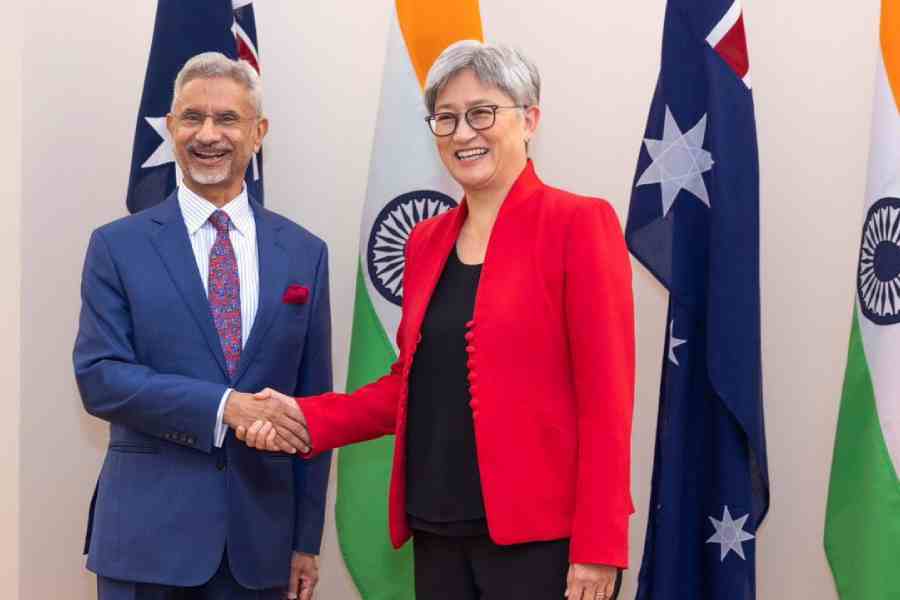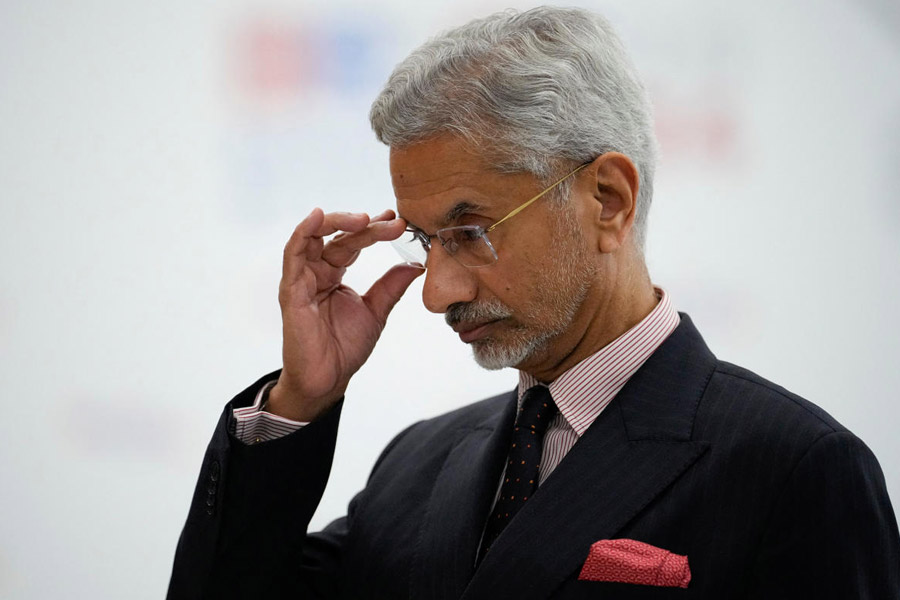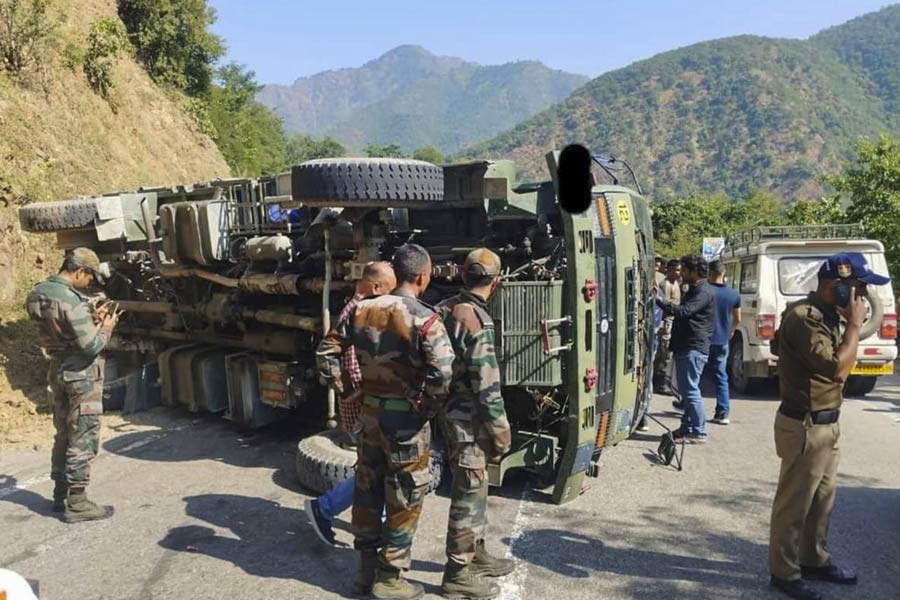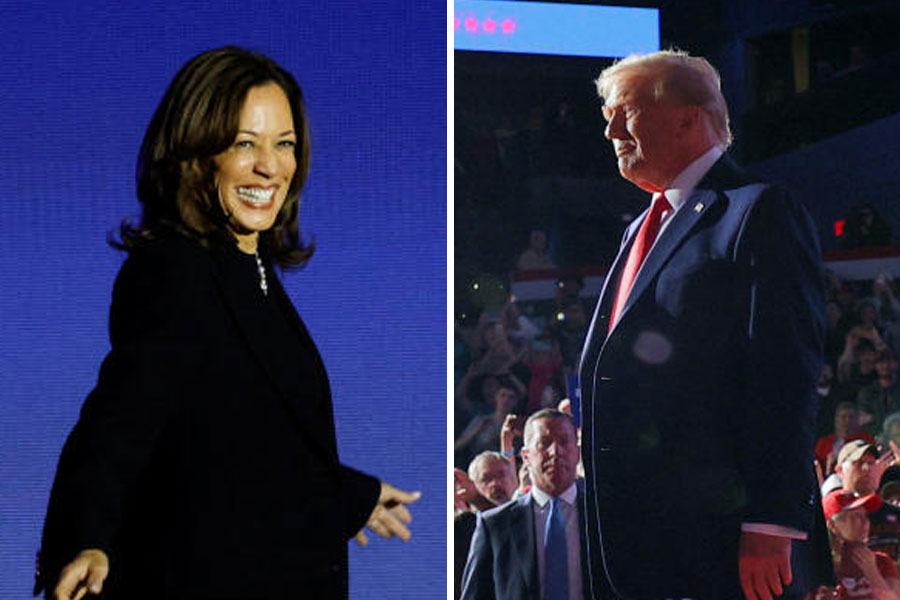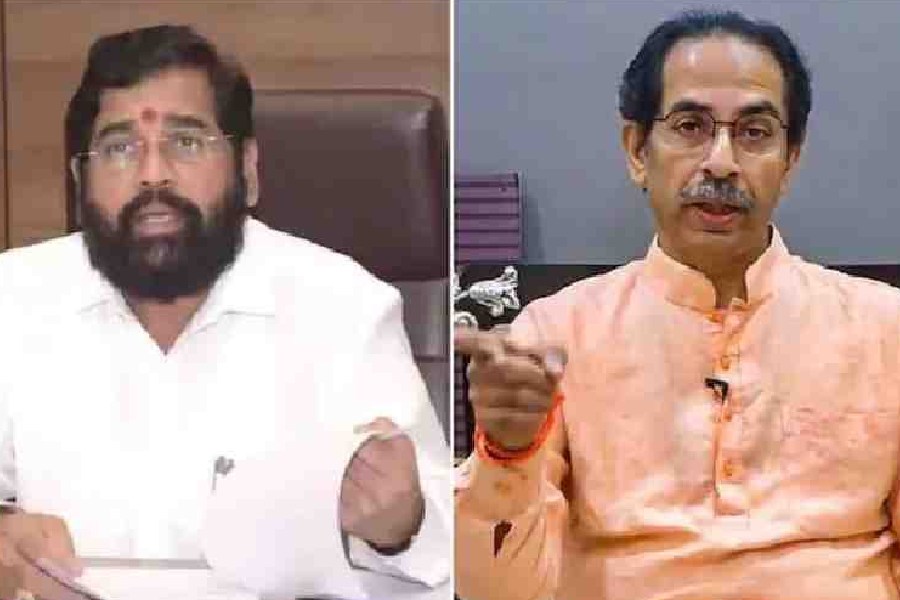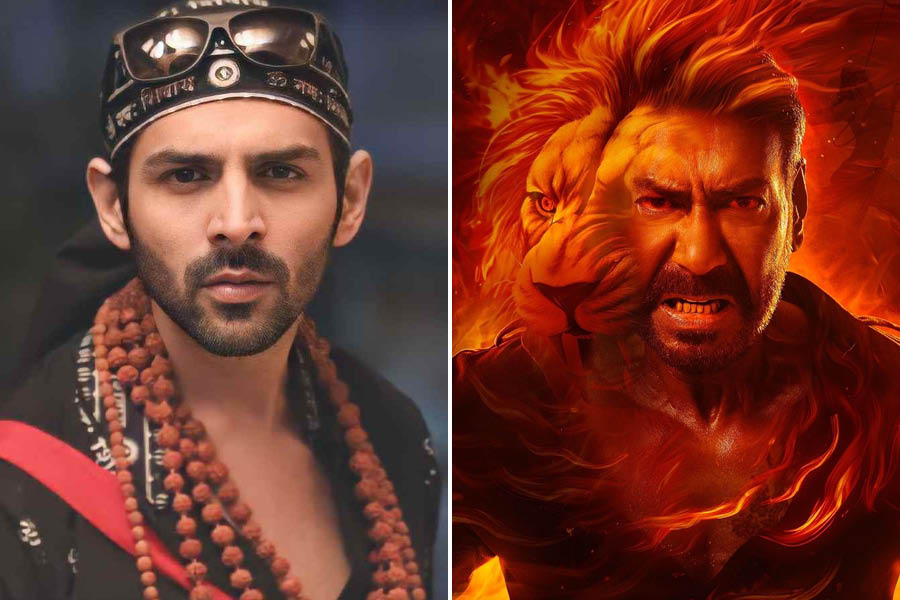Australian foreign minister Penny Wong on Tuesday said she had raised Canadian allegations against India in connection with the probe into the murder of Khalistani activist Hardeep Singh Nijjar with external affairs minister S. Jaishankar and expressed respect for Canada’s judicial process in his presence.
Addressing a media conference with Jaishankar in Canberra, Wong made the disclosure in response to questions on the probe. She was asked if she trusted “your Five Eyes partners’ intelligence” on the involvement of the Indian government in the murder of a Canadian citizen on that country’s soil. Five Eyes is an Anglosphere intelligence alliance of Australia, Canada, New Zealand, the US and the UK.
“We have made clear our concerns about the allegations under investigation. We’ve said that we respect Canada’s judicial process. We convey our views to India as you would expect us to do. And we have a principle position in relation to matters such as the rule of law and the independence of the judiciary and also frankly the sovereignty of all countries,” Wong said.
Responding to the same question, Jaishankar said: “One, Canada has developed a pattern of making allegations without providing specifics. Secondly, when we look at Canada, for us the fact that they’re putting our diplomats under surveillance is something which is unacceptable. Third, the incidents which gentleman there spoke about, do look at the video; I think they would tell you in a way the political space today which is being given to extremist forces there. So we believe in freedoms, we also believe freedoms should not be misused. And, have we had a talk about it? Exactly on the lines which I have spoken.”
By “video”, Jaishankar appeared to be referring to the “violent disruption” caused by a pro-Khalistan protest outside a Hindu temple in the Canadian city of Brampton on Sunday.
Earlier, while replying to a question on the vandalism in two Canberra temples last week, Wong said: “People across Australia have a right to be safe and respected. People also have a right to peaceful protest, people have a right to express their views peacefully, we draw a line between that and violence, incitement of hatred, or vandalism and they should be dealt with by the appropriate law enforcement authorities. We are a multi‑cultural democracy. We cherish that fact, but we also cherish those principles which enable that multi‑cultural democracy to flourish and they are respect of one another and a right to express different views peacefully.”
The divergence in both positions was evident as India disagrees with the space provided by western countries like Canada, the US, the UK and Australia in particular to pro-Khalistan elements in the name of free speech.
In Canada, the Peel Regional Police in Brampton said three persons had been arrested for the violence at the Hindu Sabha Temple on Sunday when the consulate-general of India in Toronto had set up a camp for issuing life certificates to pensioners on the premises.
The violence at the Brampton temple and similar mobilisation in Surrey and Vancouver on Sunday triggered protests on Monday evening. While a cross-section of Canadian society joined the protests in support of everyone’s right to worship, the local police asked the crowd to disperse after weapons were reportedly sighted.
“Weapons have been observed by police within the demonstration. This is now an unlawful assembly. The Public Order Unit is advising the crowds to disperse. All parties must leave the area now or face arrest,” the Peel police announced on itssocial media handle.

